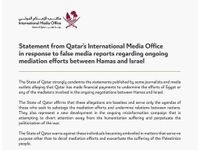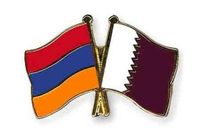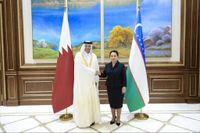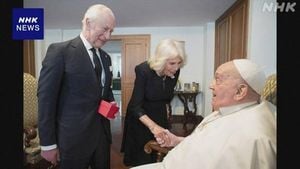In a surprising turn of events, Doha has publicly addressed the ongoing "QatarGate" scandal, which implicates former and current aides of Israeli Prime Minister Binyamin Netanyahu. The Qatari International Media Office released a statement condemning the allegations that link the Gulf state to efforts aimed at undermining mediation efforts in the region and distressing the Palestinian people.
According to the statement, the investigation against Netanyahu's associates "serves no other purpose than to undermine mediation efforts and deepen the suffering of the Palestinian people." This assertion comes amid reports suggesting that an American company allegedly sought to promote a favorable image of Qatar while disparaging Egypt's role in ongoing negotiations.
Details surrounding the case include accusations that three suspects, through payments from a figure identified as Birger, disseminated information favorable to Qatar in the media, while simultaneously diminishing Egypt's contributions to the negotiations. The Qatari media office has firmly denied these allegations, asserting that they are unfounded and part of a broader disinformation campaign aimed at distracting from humanitarian crises and politicizing the conflict.
The statement from the Qatari government also highlighted the important humanitarian role Qatar plays in the region, emphasizing the need for a permanent ceasefire and stable regulation based on the principle of two states. This comes at a time when tensions remain high, and the plight of Palestinian civilians continues to draw international attention.
"The State of Qatar confirms that these accusations are unfounded and only serve the goals of those who seek to undermine mediation efforts and undermine relations between countries. They also present their new development of an ongoing disinformation campaign that seeks to divert attention from humanitarian suffering and politicize the war," the statement elaborated.
In light of the escalating situation, Qatar's involvement in mediating peace efforts has been under scrutiny. The country has historically played a significant role in facilitating dialogue between conflicting parties in the region, particularly concerning the Israeli-Palestinian conflict. However, the recent allegations have raised questions about the integrity of these efforts.
While the Qatari government has not denied contacts with Israeli officials or the transfer of funds, it has firmly rejected the notion that it funded any campaign to tarnish Egypt's image. The statement emphasized Qatar's commitment to maintaining constructive relationships with neighboring countries, particularly Egypt, which has been pivotal in efforts to broker a ceasefire in Gaza.
The media release also included calls for a focus on humanitarian issues, stating, "There is an urgent need to alleviate the suffering of the Palestinian people and achieve a durable ceasefire." This sentiment reflects a broader concern shared by many international observers who are advocating for a peaceful resolution to the ongoing conflict.
As the investigation unfolds, the implications for Qatar's diplomatic relations and its role in the region remain to be seen. The allegations, if proven true, could jeopardize Qatar's standing as a mediator and complicate its relationships with both Israel and Egypt.
Furthermore, the Qatari response to these allegations highlights a growing narrative in which countries involved in the Israeli-Palestinian conflict are increasingly scrutinized for their roles and actions. The ongoing media coverage and public discourse surrounding the QatarGate scandal will likely continue to shape perceptions of Qatar's diplomatic intentions.
In conclusion, Qatar's proactive stance in addressing the allegations reflects its desire to maintain its role as a mediator in the region while also highlighting the humanitarian crises faced by Palestinians. As the situation develops, the international community will be watching closely to see how these dynamics play out and what they mean for future peace efforts.







